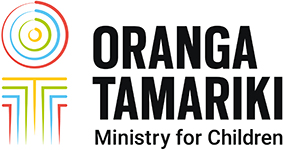MEDIA RELEASE: 7 May 2015
Shakespeare Behind Bars founder to visit
The role of art, theatre and the works of William Shakespeare in prisons will be the focus of talks by the founder of the Shakespeare Behind Bars programme in the United States during his visit to New Zealand this month.
Curt Tofteland is the fifth Creative Fellow of the University of Auckland’s Creative Thinking Project and will be here from 18 to 28 May. His schedule includes public presentations in Auckland, Wellington, and Christchurch.
The Creative Thinking Project aims to deepen understanding of the creative process so that everyone can engage in it and promote creativity as central to an individual’s and a community’s wellbeing and development.
Curt has worked in professional theatre for 37 years as a director, actor, producer, playwright, writer, teacher, programme developer, and prison arts practitioner.
His internationally acclaimed programme, Shakespeare Behind Bars offers both offenders and ex-offenders, theatrical experiences that deal with personal and social issues, enabling them to develop life skills for successful reintegration into society.
Now in its twentieth year, Shakespeare Behind Bars is the oldest Shakespeare programme of its kind operating in North American prisons.
Associate Professor Peter O’Connor is a member of the University of Auckland’s Creative Thinking board that selects the Creative Fellow. He says Curt has an international reputation for understanding the impact that creativity can have on people’s lives.
“As a board, we were particularly interested in how creativity can impact on the lives of prisoners, young people in youth justice and those recently released from prison,” he says.
“The arts and creativity can change people’s lives. Curt’s message is one of incredible hope, and he has both the experience and evidence to show that using Shakespeare in the justice sector can reduce recidivism.”
The recidivism rate for members of Shakespeare Behind Bars is 5.1 percent. This compares to the national 60 percent recidivism rate in the United States and the 29.5 percent recidivism rate for the Kentucky Department of Corrections.
“I don’t know of another programme in American corrections that has as low a recidivism rate as does Shakespeare Behind Bars,” Curt says. “This low recidivism rate is indicative of a programme that changes human behaviour and gives prisoners the tools they need to be successful when they are released from prison.”
Public lectures
Curt will give three public presentations in Auckland, Wellington and Christchurch in May. There will also be a symposium in each city for invited Department of Corrections’ staff, Arts in Corrections practitioners, academics and students.
From 1995 to 2008, Curt produced and directed 14 Shakespeare productions. In 2008, theatre practitioner Matt Wallace became Artistic Director of the Shakespeare Behind Bars programme in Kentucky and in 2010, the programme became a not-for-profit organisation. In 2011, the programme was introduced to the Earnest C. Brooks Correctional Facility in Michigan. These days, Curt facilitates eight programmes that work with 250 prisoners a week in two Michigan prisons.
“Becoming a full-time prison arts practitioner was a conscious decision I made when I chose to leave my position as Producing Artistic Director of the Kentucky Shakespeare Festival after 20 years,” says Curt. “I wanted to expand my work in Corrections and that meant dedicating my professional life to Shakespeare Behind Bars.”
“What called me to this work in Corrections and what sustains me in continuing is my belief that human beings are born inherently good, but that some human beings are born into a world of poverty, chaos, violence and dysfunction, “ he says. “This doesn’t necessarily allow the innate human goodness within to blossom. Rather, it must be called forth through transformative programmes that seek to get at what it means to be human.”
Alongside this work, Curt travels across the United States visiting college campuses to screen the Shakespeare Behind Bars documentary and conduct audience talks, master classes and lectures. A published poet and essayist, he writes frequently about the transformative power of art, theatre and the works of Shakespeare.
Richard Benge, Executive Director, Arts Access Aotearoa, says drama processes and theatre skills can have a deep impact on participants in rehabilitation.
“Curt’s experience is vast, as are his skills as a speaker and workshop facilitator,” Richard says. “We are pleased to be working with the University of Auckland, so we can all benefit from his insights and knowledge.”
For more information and media queries
For more information visit http://www.creativethinkingproject.org/
For interviews please contact:
Suzi Phillips, Media Relations Advisor
Faculty of Medical and Health Sciences
Communications, University of Auckland
E: s.phillips@auckland.ac.nz or text or phone 021 416 396




